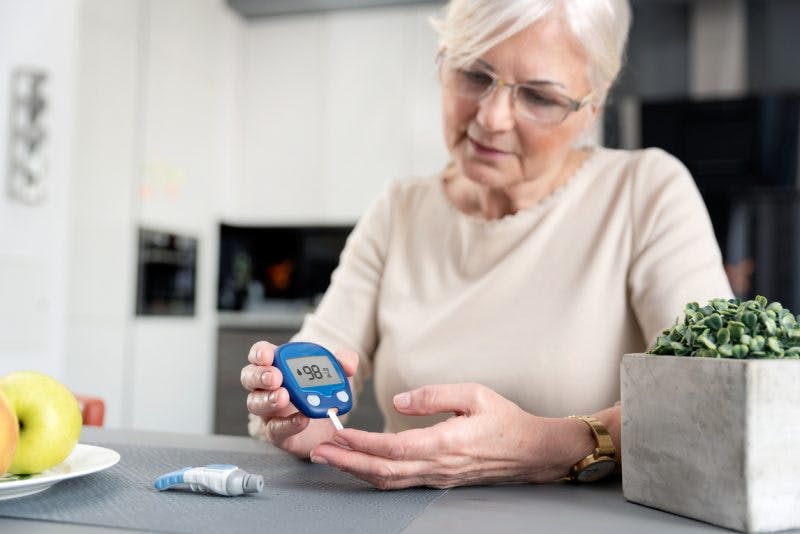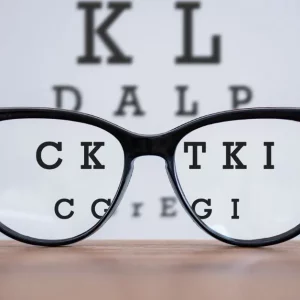While brain injury does not cause Type 1 or Type 2 diabetes, symptoms of diabetes can worsen after a severe TBI. In addition, brain injury can make treating diabetes more difficult.
This article will address how diabetes can affect brain injury treatment and vice versa.
What is Diabetes?
Diabetes mellitus is a disease that affects how the body uses glucose, the primary energy source for the body and brain.
There are two forms of diabetes mellitus that a person can develop:
- Type 1 Diabetes. The pancreas produces little to no insulin. Insulin is what allows the cells to use glucose as energy. Glucose cannot enter the cells on its own, it must use insulin as a sort of key to enter the cells.
- Type 2 Diabetes (adult-onset). With this type of diabetes, the pancreas makes insulin. Unfortunately, it does not make enough, or the insulin does not work correctly. This type is also known as insulin resistance. 90% of people with diabetes have type 2.
The cause of diabetes is still unknown. However, there are risk factors that can increase a person’s chances of developing it, such as:
- Family history
- Physical stress
- Being overweight
- Injury to the pancreas, such as infection
- Autoimmune disease
Contrary to popular belief, sugar itself does not cause diabetes. Eating a lot of sugar can cause other problems, but not diabetes. However, once someone has been diagnosed with diabetes, it is recommended to monitor their sugar intake.
Symptoms of Diabetes
Symptoms of diabetes mellitus include:
- Increased thirst
- Dry mouth
- Frequent urination
- Severe fatigue
- Blurred vision
- Numbness or tingling in hands or feet
- Slow-healing cuts
The Link Between Diabetes and Brain Injury
Brain injury can cause neuroendocrine dysfunction which can impact glucose regulation among many other things. This can lead to weight gain and possibly Diabetes Type 2 over time. Continued research is required to clarify the mechanism for developing Diabetes after Brain injury, but there does appear to be a link over time.
A brain injury can exacerbate symptoms of diabetes as well. After a brain injury, the body releases stress hormones to help fight off infections and other problems. These hormones make the body less sensitive to insulin which can cause blood sugar levels to rise. If the levels go up too high, the patient can become hyperglycemic.
Hyperglycemia is a fairly common systemic complication with TBI. The severity of Hyperglycemia correlates with the severity of the brain injury. Hyperglycemia can cause cognitive deterioration, and if not treated quickly, can lead to poor outcomes. This may be one reason remote glucose monitoring can be helpful for TBI patients. More about that below.
On the flip side, Diabetes itself can cause brain damage if insulin is not given promptly. Hyperglycemia (high blood sugar) over time damages blood vessels in the brain which can lead to brain cell death causing memory problems.
An overabundance of Insulin can lead to hypoglycemia (low blood sugar). This occurs when your blood sugar levels drop below 70mg/dL. Symptoms of low blood sugar may include dizziness, shaking, irritability, fainting, or even a diabetic coma, which causes life-threatening brain damage if left untreated. Extremely low blood sugar can cause a diabetic seizure, which can also result in brain damage.
Treating Diabetes After Brain Injury
The main goal of diabetes treatment is to keep glucose levels (blood sugar) under control to avoid complications referred to above. You can do this through a combination of lifestyle changes and insulin injections.
All diabetics must monitor their blood sugar regularly to make sure it doesn’t get too high or low. Type 1 diabetics will also need regular injections of insulin because their pancreas does not produce any naturally.
Type 2 diabetes patients can usually manage their condition by avoiding sugary foods and exercising. Exercise burns up spare glucose and helps keep blood sugar levels stable. However, patients may still need insulin injections occasionally.
Brain injury can make diabetes treatment more complicated. Factors such as impaired memory mean it can be easy to forget to monitor glucose levels and administer insulin.
The good news is new adaptive techniques can help you manage your diabetes independently after a brain injury.
For example, you can use alarms to help remind you when to take insulin. There are also continual glucose monitors that can alert family members if your blood sugar gets too high or low. And there are insulin pumps that read your glucose levels and automatically administer insulin when necessary.
In fact, remote patient monitoring is a convenient development in healthcare that addresses more than one aspect of your healthcare needs. These developments include remote glucometers and other connected health devices that take your daily blood glucose, blood pressure, and other vital signs and automatically transferred the data to your physician for review. All this leads to a healthier you after TBI.
Understanding Brain Injury and Diabetes
Diabetes and brain injury, when they occur together, create a unique set of problems and needs. The cognitive effects of brain injury can make it more difficult to stay vigilant about glucose levels and insulin dosage. Diabetes can worsen brain damage symptoms by causing fatigue and other problems. If blood sugar gets too high, further brain damage can occur.
Fortunately, with advancements made in diabetes treatment, it is much easier to minimize the harm diabetes can cause to brain injury patients. Using a remote glucose monitoring system can help you avoid dangerous events like diabetic comas or seizures.
Talk to your endocrinologist for more advice and a complete list of equipment that can help you manage both your diabetes and brain injury effectively.
Featured Image: iStock/simpson33










